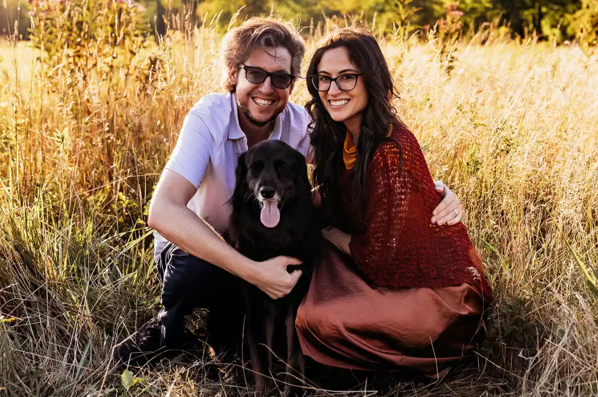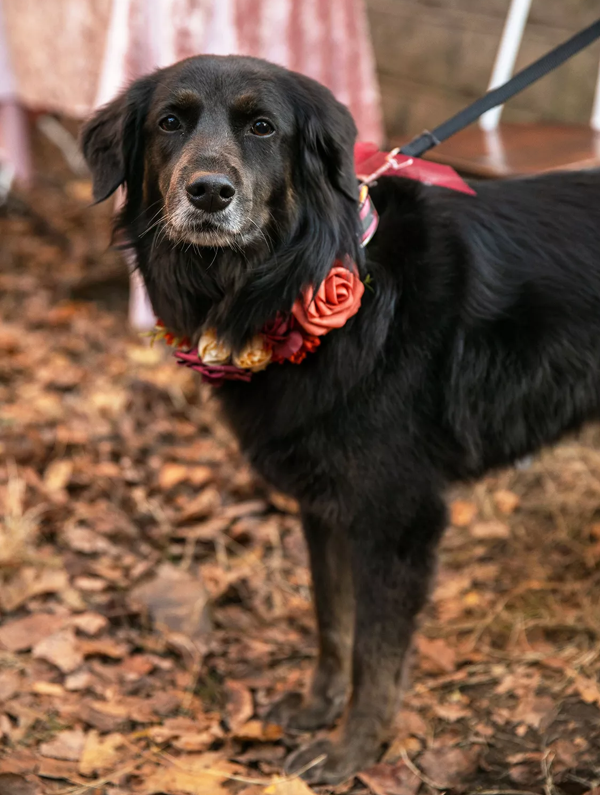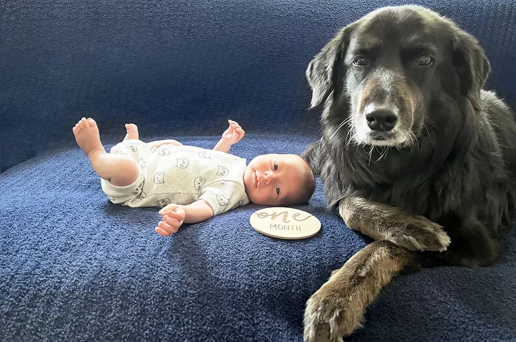Some New York hospitals are helping their patients by letting dogs accompany them through a life-changing event. According to Northwell Health, the biggest health system in New York, a pregnant patient’s emotional support dog may accompany her to the postpartum unit for comfort.
Lisa Schavrein, an OBGYN nurse navigator at Northwell’s Lenox Hill Hospital in New York City, arranged these visits. She stressed how crucial it is to prepare, pointing out that they have 40 weeks to prepare before patients arrive.
Schavrein helped expect clients, ensuring their needs were satisfied when they arrived. She also handled situations requiring further attention, such as scheduling visits for emotional support animals.
Schavrein said that having a baby naturally causes anxiety, regardless of pre-existing conditions. So, allowing emotional support animals to provide comfort is a straightforward decision.
The Northwell Health program showed a dedication to providing patients with overall treatment, acknowledging the emotional support animals’ therapeutic advantages during the postpartum period. The strategy seeks to improve patient well-being and support mental health through familiar companionship.
Northwell’s philosophy emphasizes empathy and understanding, ensuring that patient’s psychological and emotional requirements are given equal weight to their physical demands.
When recovering from childbirth, patients who wanted to bring their emotional support animals to Lenox Hill Hospital had to follow specific rules. They had to give Lisa Schavrein, the nurse navigator, the paperwork for their pet’s emotional support animal before the due date. Schavrein reviewed the papers, made the required arrangements, and informed the security team and hospital staff beforehand.
The emotional support animal had to be hypoallergenic to avoid causing discomfort to other patients. Furthermore, the dog had to stay with the patient’s partner throughout its stay—not the person who gave birth—to ensure someone was around to take it outside for potty breaks.
The hospital’s labor and delivery area was off-limits to emotional support animals due to safety issues. They could see their owners in their antepartum or postpartum rooms instead.
Schavrein stressed how much comfort these animals brought to the sufferers. Although some patients eventually chose not to get their animals, she said it comforted them to know they had the choice.
Schavrein commented that This is a huge comfort to them” regarding the existence of the emotional support animals.
She added that some people chose not to bring their pets. Just knowing they had the choice, if necessary, comforted them.
Prioritizing their patients above all else, Lenox Hill Hospital recognized the psychological advantages of using emotional support animals postpartum. Their rules were to maintain everyone’s safety and comfort while also assisting patients in feeling better

Natalie Reyes Bursky, a lawyer with a nonprofit organization that focuses on community justice, was comforted by her emotional support animal, Magita, beside her at Lenox Hill Hospital after giving birth on April 30, 2023. Since Natalie rescued Magita in Chile in 2011, the “super mutt” has been her devoted companion, and in 2014, she adopted her as an emotional support dog.
For years, Natalie has struggled with anxiety and sadness; she finds comfort in Magita’s serene presence when facing difficulties in life. She considers emotional support animals a wonderful form of help and advocates for de-stigmatizing their purpose in life.
Natalie and her spouse, Ryan Bursky, scheduled Magita’s visit in advance with nurse navigator Schavrein after learning that she might accompany them in the hospital’s postpartum ward. They knew that Magita, trained as a hospital therapy dog during the problematic postpartum phase, may provide stability and solace.
Even though the couple knew that Magita could help, they were pleasantly shocked by how much she loved and trusted them during their hospital stay. At a moment of significant change in their lives, Magita’s presence calmed Natalie down and provided solace to the whole family.

Natalie and Ryan were caught off guard when her labor started suddenly. In less than half an hour, she gave delivery, just averting a possible automobile birth had it been a Monday rather than a Sunday. There was an intense rush to the hospital through New York City.
Natalie had a horrible and troubling experience during the quick and hard labor. Her newborn boy’s rapid admission to the NICU because of low oxygen levels in his lungs made the situation even more upsetting. Natalie was unaware of this sudden turn of events; she had hoped for a calm, serene birth and some time to spend with her new baby right away.
Soon after her child was born, Natalie’s emotional support dog, Magita, appeared in her postpartum room. Even though Magita didn’t have her child with her yet, she nevertheless offered much-needed comfort and company. The situation prevented Natalie from moving, so it was a huge comfort to have Magita close by.
Ryan felt Magita’s soothing presence as well. He was present as Magita gave Natalie comfort and hope during a trying and emotional moment.
During those trying days in the NICU, Magita’s presence in the hospital room, laying on a blanket next to Natalie, was a huge source of comfort and security for both Natalie and Ryan

During the strange and invasive hospital rituals, Ryan felt more at ease and normal when Magita was present. It was nice to have someone familiar around at such a crazy time.
While in the hospital, Magita got to know her new baby brother. Ryan and Natalie ensured the baby’s blankets and hats were on Magita’s blanket so she could get used to the smell. When they eventually met, the introductions became easier.
Magita and the baby bonded so well that Ryan was astounded. They became good friends very soon.
Natalie and Ryan will never forget Magita’s ability to provide joy and serenity during a trying time. Other owners of emotional support animals expecting a newborn are urged to consider having their animal around as soon as possible after delivery.
Natalie said that For anyone who has struggled with their mental health, especially as it’s now more accepted to talk about it openly, having Magita there meant everything to her.
